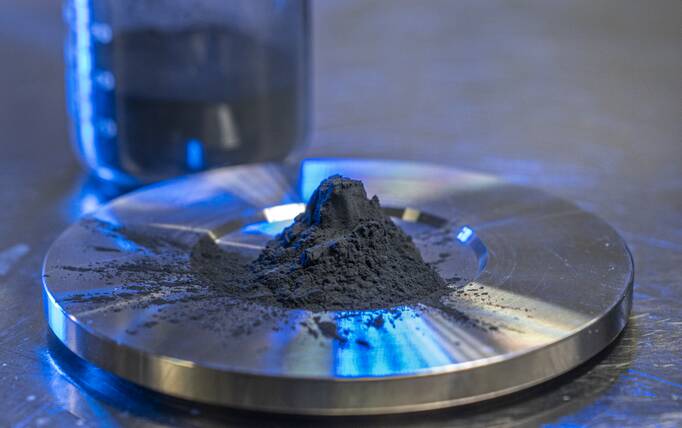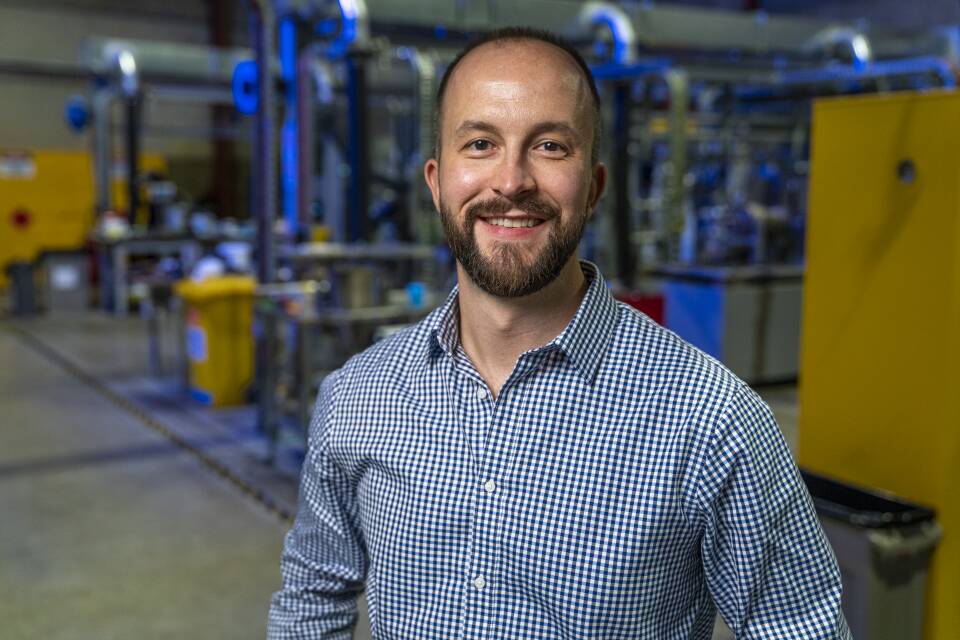
Australia will have to act with more urgency - or risk losing home-grown green technologies overseas when we're ideally placed to develop them.
Subscribe now for unlimited access.
or signup to continue reading
That's the lesson from Wollongong-born startup bolter Sicona, which is celebrating its success in raising $22 million in equity, led by India's Himadri Specialty Chemical Ltd, to finance its expansion plans in battery manufacturing.
It's a huge moment for the firm, which was founded on research at the University of Wollongong, and grown in the iAccelerate business incubator, but it will build its next commercial production factory not in the Illawarra but in the USA.
Simply, the grants, loans and incentives available from the Biden Administration for renewable energy technology are way beyond those on offer in Australia.
Sicona CEO Christiaan Jordaan told the Mercury the company would still be based in Wollongong and a factory planned for Shellharbour is still on the agenda. But unless Australia got more serious about boosting renewable technology, we're likely to lose projects that should stay here.
"We just need to get a hurry on - I've been saying that for a while but it seems it's been shouting in the wind a bit," he said.
"Hopefully things will pick up and we can just dial up our ambition - and just capture more of the value and leverage our technologies.

"This [Sicona] is a great example. This technology was initially invented and tested within University of Wollongong's laboratories.
"We came along, negotiated a deal to acquire it, the university became a shareholder as part of that transaction.
"I've been working closely with them, with ongoing research programs and hiring a bunch of researchers out of the university in our growth path.
"It's a great testimony to what can be done if we can just realise how much innovation we have within our research universities.
Mr Jordaan said developing the $50 million-plus factory in Shellharbour was awaiting a decision on funding from the NSW Government, with construction "ideally" to start in the first half of 2025, and the company's offices would remain in the Illawarra.
Sicone produces next generation battery materials which can deliver significantly higher cell density and greater capacity for lithium-ion (Li-ion) batteries for mobile electric uses and storage of renewable energy.
The US facility, a silicon-carbon production plant at a site to be determined "in the southeastern states", would start construction slightly earlier providing finance can be arranged after a site is selected.

Mr Jordaan said the market for advanced batteries was more developed in the US, on top of the government incentives.
"The market was, has been and currently is more developed than in Australia," he said.
"There are quite a number of vehicle manufacturers and a big demand there. However, the end portion is the Inflation Reduction Act has just put that on to a whole new level and it's really sped up the the whole cycle - because new entrants like ourselves can now, if we build in the US, access Department of Energy grant funding.
"And when I say grant funding they, actually write cheques, as they told me, the minimum grant they will provide to a company like us is $100 million. So it's fair numbers.
"Then the loans that they've made available - I think they've made US$7.5 billion of loans available specifically for clean energy, and very heavily leaning on the battery supply chain.
"If we set up the plant, their manufacturing and then our customers who buy our material, they get additional incentives and then the end consumer of electric vehicles gets additional incentives.
"So it's just really capitalised, massive private investment and development in, in that market. So Australia can do well to just copy and paste that really."
Mr Jordaan said Sicona's core product was an innovative silicon metal based battery anode technology which enabled an energy increase of more than 50 per cent over existing litgium-ion batteries.
"By using silicon metal (and not expensive, supply chain constrained and dangerous silane gas like our competitors) Sicona can offer low-cost silicon anode materials at large automotive scale locally in major markets," he said.
And Australia was ideally placed to develop this industry - if the will is there.
"How much entrepreneurial spirit is in Australia?" Mr Jordaan said.
"We're not even touching all the natural resources we have. We have immense natural resources for the battery supply chain - but we're just at the moment digging it up and shipping it away."
He hoped construction on the US plant would start at the end of 2024.
- Our news app has had a makeover, making it faster and giving you access to even more great content. Download The Illawarra Mercury news app in the Apple Store and Google Play.


